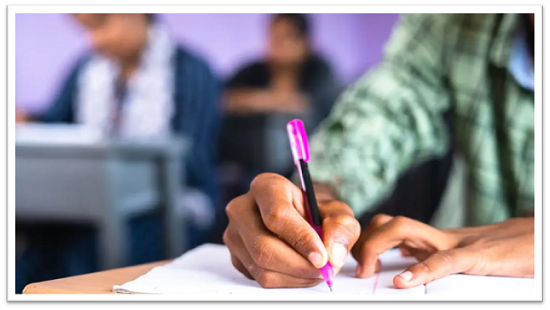
Maharashtra CET Exams to Be Held Twice a Year from 2026: Major Reform Announced for PCM, PCB, and MBA Courses
The Maharashtra government has announced a significant reform in its higher education examination framework. From 2026 onward, the State Common Entrance Test (CET) for PCM, PCB, and MBA courses will be conducted twice a year. The decision was confirmed by Higher and Technical Education Minister Chandrakant Dada Patil after a review meeting held on November 11.
The move aims to provide students with greater flexibility and reduce the stress associated with single-session exams. The announcement brings Maharashtra’s examination structure in line with national-level tests like JEE and NEET, which already offer multiple opportunities within a year.
The Decision and Its Implementation
Minister Patil shared the details on his official social media account, stating that the CET for PCM (Physics, Chemistry, Mathematics), PCB (Physics, Chemistry, Biology), and MBA will be held twice annually beginning in 2026. The first examination will take place in April, followed by a second round in May.
According to the minister, it will be mandatory for students to appear for the first exam, while the second will remain optional. If a student attempts both, the higher score among the two will be considered for admission. This flexible structure is expected to ease pressure on students while maintaining fairness and transparency in the admission process.
The reform was finalized after detailed discussions with the State CET Cell and academic boards to ensure that the new format aligns with the state’s academic calendar and infrastructure readiness.
Why This Matters for Students
For thousands of students across Maharashtra, the CET is the gateway to professional education in engineering, pharmacy, agriculture, and management. Conducting the exam twice a year will allow students to improve their scores without losing an academic year, providing an opportunity similar to that offered by global testing systems.
The move also reflects the government’s intent to modernize the examination ecosystem, providing equal opportunities for students from all backgrounds. With increased accessibility and flexibility, the new structure will help reduce anxiety and enhance performance through better preparation and planning.
Overview of MHT CET
The Maharashtra Common Entrance Test (MHT CET) is conducted by the State Common Entrance Test Cell established under Section 10 of the Maharashtra Unaided Private Professional Educational Institutions (Regulation of Admissions and Fees) Act, 2015. The CET Cell manages entrance examinations for admission to professional programs across the state.
The PCM group caters to students aspiring for admission in engineering and agriculture programs, while the PCB group is for those seeking entry into pharmacy, agriculture, and related courses. The MBA CET, conducted separately, is used for admission into management programs in various institutions across Maharashtra.
MHT CET 2025 Snapshot
The MHT CET (PCB group) exam was conducted from April 9 to April 17, 2025, while the PCM exam was held from April 19 to April 27. The exams were conducted in two daily sessions, from 9:00 a.m. to 12:00 p.m. and from 2:00 p.m. to 5:00 p.m.
The PCM results were announced on June 16, with 22 candidates scoring a perfect 100 percentile. The PCB results followed on June 17, with 14 students achieving full percentile scores. The exams were entirely computer-based, ensuring a smooth and transparent evaluation process.
Academic and Public Response
The decision has been widely welcomed by students and educators alike. Many view the reform as a step toward creating a more student-centered and flexible testing framework. Education experts have noted that conducting the exam twice annually will help level the playing field for students who may not perform their best in a single attempt.
However, some institutions have urged the government to ensure that the new schedule does not overlap with national entrance exams or final board examinations. Proper coordination among testing agencies will be essential for the reform to succeed without logistical conflicts.
Moving Toward Examination Reform
This change reflects a broader transformation within India’s education policy, focusing on reducing exam-related pressure and aligning with international standards. With over nine lakh students appearing for CET each year, the state’s decision to introduce two sessions aims to improve participation rates and academic performance.
The reform also follows the growing consensus that flexibility in testing encourages continuous learning rather than high-stakes performance. It supports the government’s vision to make Maharashtra’s education system globally competitive while remaining accessible and equitable.
The Road Ahead
The State CET Cell will release detailed guidelines in 2025 outlining the structure, syllabus, and evaluation criteria for the new twice-a-year format. Students will have access to mock tests and preparatory materials in advance to adapt to the dual-exam system.
From 2026, colleges and universities will adjust their admission cycles to accommodate the results from both sessions, ensuring a seamless transition for students. The decision is expected to enhance Maharashtra’s higher education ecosystem by making it more efficient, inclusive, and outcome-driven.
Maharashtra’s decision to conduct the CET twice a year marks a pivotal shift toward modernization and student empowerment. By giving candidates a second chance without academic penalty, the state is setting a precedent for examination reform across India. This change is not only about convenience, it represents a broader commitment to fairness, opportunity, and academic excellence.





